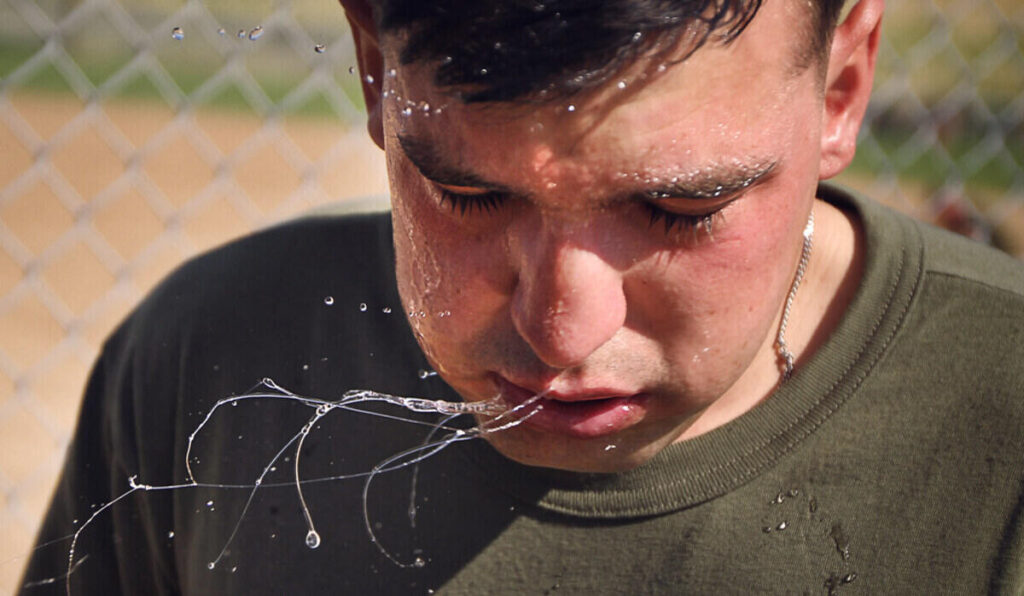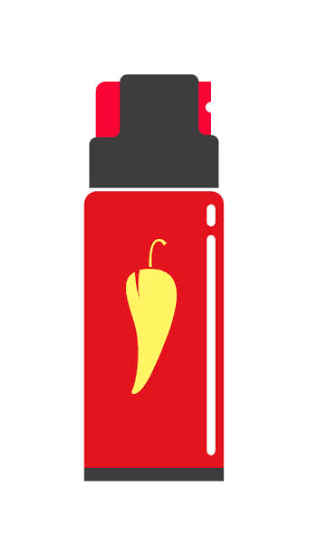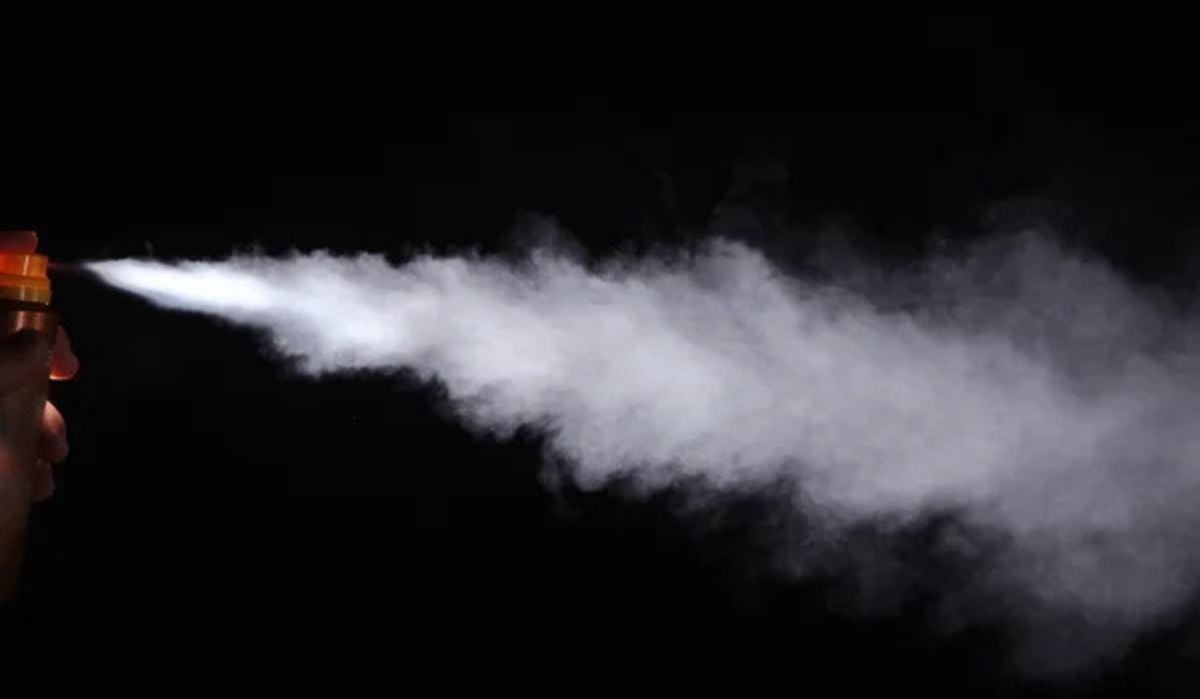Pepper spray is a popular self-defense tool used by many to protect themselves from potential threats. However, if you find yourself accidentally inhaling pepper spray, it can be an extremely distressing and uncomfortable experience. In this guide, we’ll provide you with step-by-step instructions on what to do if you inhale pepper spray and how to alleviate its effects effectively.
What to Do If You Inhale Pepper Spray
Pepper spray contains capsaicin, a chemical compound derived from chili peppers, which is responsible for its powerful effects on the eyes, skin, and respiratory system. When inhaled, it can cause burning sensations, difficulty breathing, coughing, and intense discomfort. Here’s what you should do if you find yourself in this situation:
1. Stay Calm and Find Fresh Air
If you accidentally inhale pepper spray, the first and most crucial step is to remain calm. Panicking can exacerbate the situation. Move to an open area with fresh air immediately to reduce the effects of the pepper spray on your respiratory system.
2. Keep Your Eyes Closed
As you move to a safe area, keep your eyes tightly closed to prevent further irritation. Do not rub your eyes, as it may spread the pepper spray residue and worsen the burning sensation.
3. Breathe Slowly and Gently
Take slow and shallow breaths to minimize the intake of the pepper spray chemicals into your lungs. Breathing rapidly may cause you to inhale more of the irritants, intensifying the discomfort.
4. Remove Contaminated Clothing
If your clothes have come in contact with the pepper spray, carefully remove them to avoid spreading the chemicals to other parts of your body.
5. Flush Your Eyes and Face with Water
Once in a safe area, use copious amounts of water to flush your eyes and face thoroughly. Gently splash water on your face, making sure to rinse away any remaining pepper spray residue. You can also use a damp cloth to wipe the affected areas.
6. Avoid Touching Your Face
Throughout the decontamination process, refrain from touching your face with your hands to prevent further spread of the pepper spray.
7. Use a Neutralizing Solution
After rinsing with water, you can use a mixture of baking soda and water as a neutralizing solution. Apply it gently to your face and eyes, but be cautious not to rub it in.
8. Stay Upright
It is advisable to remain in an upright position during the decontamination process. Lying down may cause the chemicals to settle in your airways, making it harder to breathe.
9. Avoid Certain Remedies
While some may suggest using milk or lemon juice to alleviate the effects of pepper spray, these remedies are not recommended. Milk can cause bacterial contamination, and lemon juice may further irritate the skin.
10. Allow Time for Recovery
In most cases, the effects of pepper spray exposure will subside on their own with time. Allow your body to recover naturally, and avoid unnecessary exposure to irritants during the healing process.
Frequently Asked Questions (FAQs)

Q: How long do the effects of pepper spray inhalation last?
The duration of the effects can vary depending on the individual and the extent of exposure. In general, the symptoms may last anywhere from 30 minutes to a few hours.
Q: Can inhaling pepper spray cause long-term damage?
Inhaling pepper spray is usually a temporary and non-life-threatening condition. However, individuals with pre-existing respiratory issues may experience more severe reactions. If you have concerns about your health, it’s best to seek medical attention.
Q: Can I use eye drops to relieve the burning sensation?
Using eye drops to alleviate the burning sensation is not recommended, as they may not be effective in neutralizing the pepper spray chemicals. It’s best to stick to flushing with water and using the baking soda solution.
Q: What if the symptoms persist even after decontamination?
If the effects of pepper spray inhalation persist or worsen despite following the decontamination steps, seek medical attention immediately.
Q: Can I go back to normal activities after being exposed to pepper spray?
It is advisable to take some time to rest and recover after being exposed to pepper spray. Engaging in strenuous activities may exacerbate the discomfort and slow down the healing process.
Q: Can I prevent pepper spray inhalation?
While accidents can happen, you can take precautions by using pepper spray responsibly and being aware of wind direction when deploying it for self-defense.
Conclusion
Experiencing accidental pepper spray inhalation can be a distressing situation, but knowing what to do can make all the difference. Staying calm, finding fresh air, and following the decontamination steps are essential for a quicker recovery. Remember, the effects of pepper spray inhalation are usually temporary, and seeking medical attention is crucial if you have pre-existing respiratory conditions or if the symptoms persist. Stay safe, stay prepared, and take necessary precautions to protect yourself and others.
READ: What is OC Spray? A Comprehensive Guide
Bliss Ferdinand is a resilient single mother and the founder of pepperspraymum.com, a blog dedicated to empowering women and promoting personal safety. With a passion for self-defense, Bliss shares her knowledge and experiences to help other mothers protect themselves and their families. Through her blog, she educates her readers about the effective use of pepper sprays, offering valuable insights, product reviews, and practical tips on staying safe in various situations. Bliss’s commitment to her community has inspired many women to take charge of their own security, making pepperspraymum.com a go-to resource for those seeking practical advice and peace of mind

